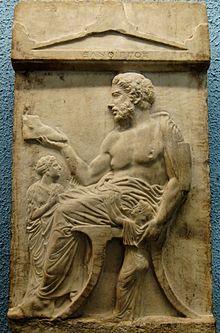Definition and Distinction
– A cordwainer is a shoemaker who makes new shoes from new leather.
– The cordwainers trade is contrasted with the cobblers trade, which is restricted to repairing shoes.
– The term ‘cobbler’ is widely used for tradespersons who make or repair shoes.
– The Oxford English Dictionary considers the term ‘cordwainer’ archaic, except in the names of guilds.
– The guild of corvisors, known as shoemakers, presented Play 14 of the Chester Mystery Plays.
Etymology
– The term ‘cordwainer’ entered English from the Anglo-Norman ‘cordewaner’ and initially denoted a worker in cordwain or cordovan leather.
– Cordwain or cordovan leather was historically produced in Moorish Córdoba, Spain.
– The earliest attestation of the term ‘cordwainer’ in English is from around 1100.
– The term is now considered obsolete, except in the name of trade-guilds or companies.
– Trade unions may still employ the term ‘cordwainer.’
History
– British tradition distinguishes between cordwainers and cobblers, with cordwainers making new shoes and cobblers repairing shoes.
– Medieval cordwainers used cordovan leather for high-quality shoes, but they also used domestically produced leathers.
– In the historic London guild system, cobblers and cordwainers formed separate guilds.
– The Worshipful Company of Cordwainers historically controlled the occupation of cordwainer in London.
– Cordwainers College in London was recognized as a leading establishment for training shoemakers and leather workers.
United States
– Cordwainers were among the settlers who sailed to Virginia in 1607 to settle in Jamestown.
– The leather and shoe trades were flourishing in Virginia by 1616.
– Christopher Nelme, from England, was the earliest recorded named shoemaker in the American colonies.
– In 1984, the Honourable Cordwainers Company was founded in the United States as a modern guild.
– The Company was granted official status through recognition by The Master of The Worshipful Company of Cordwainers in London.
Canada
– Cordwainers were among the early settlers of Canada.
– In 1749, British settlers arrived in Nova Scotia, including nineteen cordwainers.
– Lieutenant Governor Edward Cornwallis established the settlement now called Halifax.
– Cordwainers also played a role in the early history of Canada.
– The settlement of Halifax had a significant number of cordwainers among its initial settlers. Source: https://en.wikipedia.org/wiki/Cordwainer
A cordwainer (/ˈkɔːrdˌweɪnər/) is a shoemaker who makes new shoes from new leather. The cordwainer's trade can be contrasted with the cobbler's trade, according to a tradition in Britain that restricted cobblers to repairing shoes. This usage distinction is not universally observed, as the word cobbler is widely used for tradespersons who make or repair shoes.



The Oxford English Dictionary says that the word cordwainer is archaic, "still used in the names of guilds, for example, the Cordwainers' Company"; but its definition of cobbler mentions only mending, reflecting the older distinction. Play 14 of the Chester Mystery Plays was presented by the guild of corvisors, known to mean shoemakers.
